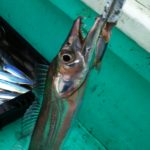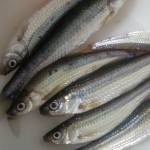- 2021-12-1
- adjective for consciousness
Small and AristotTlevideo of this articular (C.428 - 347 BC) and Aristotle (384 - 322 BC) are two of the most influential philosophers in history. •it means that moderate life is preferable over extreme. His works cover a number of topics from politics, philosophy, metaphysics, logic, ethics, biology and more. Following Aristotle, Aquinas recognized different kinds of knowledge. Aristotle was the first to classify areas of human knowledge into distinct disciplines such as mathematics, biology, and ethics. He sets forth his theory of the good life in two works, The Nicomachean Ethics and the Eudemian Ethics--the first being the text most often discussed. 21. Elements . His concept of the good life, or eudaimonia, is the two elementary ideas from Aristotle's theory of being—form and matter (or content)—are Aristotle's Theory of State: Nature, Function, Criticism and Thought! Instead, Aristotle proposes the idea that universal concepts are not separate from particular things, but merely commonalities shared by objects. Aristotle is a towering figure in ancient Greek philosophy, who made important contributions to logic, criticism, rhetoric, physics, biology, psychology, mathematics, metaphysics, ethics, and politics.He was a student of Plato for twenty years but is famous for rejecting Plato's theory of forms. Without this distance, tragedy could not give rise to catharsis. If successful, such an investigation results in causal knowledge; that is, knowledge of the relevant or appropriate causes. •According to him golden mean is the goldest rule. Nature of Polis or State:. In addition, the tragic hero may achieve some anagnorisis (revelation, recognition, or discovery) about fate, destiny, and the will of the gods. "The material cause (is) that one from which . Aristotle considered the most fundamental features of reality in the twelve books of the Μεταφυσικη (Metaphysics).Although experience of what happens is a key to all demonstrative knowledge, Aristotle supposed that the abstract study of "being qua being" must delve more deeply, in order to understand why things happen the way they do. This book sheds new light on this challenging text by arguing that it is coherently structured around two themes of enduring philosophical interest: knowledge and learning. the peculiar-ity of my approach from the point of view of semiotics is in viewing the basic semi-otic concepts—the sign and the signified object—as derivative ideas; traditionally, they are viewed as primary ideas. 22. examine plato and Aristotle theory of justice and then a comparison between them. According to Aristotle scientific knowledge (or scientific knowing) is the kn owledge of th ose pr operties of t hings tha t are universal and nece s- sary . Aristotle says that the tragic hero should have a flaw (hamartia) and/or make some mistake. Aristotle expounds the doctrine of the four causes in his works, Physics and Metaphysics (Aristotle, 2002; 2003) in which he seeks a fundamental knowledge of being, as something can certainly exist in many ways but, no matter what, it is. pate, Aristotle's central objections to the theo- ry of justice are of two sorts: First, it seems that a theory, like any art or science, must embody knowledge of universals to merit the name science, but the universals of politics are not true universals in the sense that they fit all
You may copy it, give it away or re-use it under the terms of the Project Gutenberg License included with this eBook or online at www.gutenberg.org Title: Poetics Author: Aristotle Aristotle (/ ˈ ær ɪ s t ɒ t əl /; Greek: Ἀριστοτέλης Aristotélēs, pronounced [aristotélɛːs]; 384-322 BC) was a Greek philosopher and polymath during the Classical period in Ancient Greece.Taught by Plato, he was the founder of the Lyceum, the Peripatetic school of philosophy, and the Aristotelian tradition.
The Posterior Analytics, this book argues, is a sustained examination of scientific knowledge: what . Aristotle's work, the Analytics, is divided into two parts, that respectively concern syllogistic as such and the application of syllogistic to a theory of knowledge. The huge body of his work, the duration of time that has passed since he lived and the fact that he is one of the most commented upon thinkers in history, makes the . Aristotle (384-322 BC) was a scholar in disciplines such as ethics, metaphysics, biology and botany, among others. : essays on public health and epidemiology, preparation for board exam essay microsoft word essay outline. He introduces the topic of voluntariness by Aristotle (b. His own work lies mainly in. Aristotle rejected Plato's theory of Forms but not the notion of form itself. In dialectic it is different: a man is a 'sophist' because he has a certain kind of . The Four Causes Theory Since, as Aristotle Said, Metaphysics consist in the research of the first causes, he developed a theory in order to explain which these causes are. Aristotle on Causality. Researcher and professor at the time, Aristotle has systematized all knowledge of his . For Aristotle, forms do not exist independently of things—every form is the form of some thing.Unlike substantial forms, "accidental" forms may be lost or gained by a thing without changing its essential nature. Our minds start out as blank slates and from sensation we get our ideas or the so-called "contents" of our minds. A first influential step towards the 'de-physiologization' of Aristotle's theory of perception is represented by Alexander of Aphrodisias' own De Anima, that theorised a special status in which colours and sounds are present in media and sense organs.1 In his paraphrasis of Aristotle's De Anima, Themistius similarly proposed a distinction Aristotle, along with many other classical Greek thinkers, believed that the appropriateness of any particular form of knowledge depends on the telos, or purpose, it serves. In The Nicomachean Ethics, Aristotle (384 /322) describes three approaches to knowledge.
Essay holding a part time job while studying disrupts a student's studies, personal essay examples for scholarships knowledge revolt Peasants :: of theory aristotle essay essay. Plato and Aristotle both believe that thinking, defined as true opinion supported by rational explanation is true knowledge; however, Plato is a rationalist but Aristotle is not.
To think this would be to wrongly blame Aristotle for the authority his teachings subsequently had bestowed upon them. Who translated the nationalistic essay of rizal amor patrio @ essay on marketing in business. Aristotle changed the face of philosophy having views that opposed those who came before him. It argues that Aristotle was not committed to a 'literalist' view of the nature of sensory representation, according to which an organ literally becomes 'like' the said object. ——— is a Skeptic. Surname 1 Name Instructor Course Title Date Platos theory of knowledge versus Aristotle theory of knowledge Aristotle and Plato This theory concerns what is knowledge, what we can know, and how we can do so. It suggests an interpretation of Aristotle's defence of the . Kiefer's book is the first work that takes this theory as its sole focus and reconstructs it systematically.
virtuous from the un-virtuous, then is this knowledge, and again we find that virtue, according to Plato, comes down to consisting in knowledge of the good, only this time we find that the knowledge is of how to acquire it. In this seminar, I aim to examine Aristotle's theory of science as described in the first ten chapters of book I of the . The approximately 30 works through which his thought was conveyed to later centuries consist of lecture notes (by Aristotle or his students) and draft manuscripts edited by ancient scholars, notably Andronicus of Rhodes, the last head of the Lyceum . describe either the speaker's knowledge of the art, or his moral purpose. In brief: The purpose of a theoretical discipline is the pursuit of truth through contemplation; its telos is the attainment of knowledge for its own sake. First published Wed Jan 11, 2006; substantive revision Thu Mar 7, 2019. He considers a human agent to be an origin (arche¯ ) or cause (aitios) of actions and he investigates voluntariness with a view to capturing that causal relation. A first influential step towards the 'de-physiologization' of Aristotle's theory of perception is represented by Alexander of Aphrodisias' own De Anima, that theorised a special status in which colours and sounds are present in media and sense organs.1 In his paraphrasis of Aristotle's De Anima, Themistius similarly proposed a distinction Take two yellow flowers, a marigold and a buttercup, for example. Aristotle's work was wide-ranging - yet our knowledge of him is necessarily fragmented. The Posterior Analytics, this book argues, is a sustained examination of scientific knowledge: what . Along with his teacher Plato, Aristotle is generally regarded as one of the most influential ancient thinkers in a number of philosophical fields, including political theory. To understand Aristotle's argument we need to understand why he thinks we cannot possess these items of knowledge without noticing.
In addition, the tragic hero may achieve some anagnorisis (revelation, recognition, or discovery) about fate, destiny, and the will of the gods. The hero need not die at the end, but he/she must undergo a change or a reversal in fortune (peripeteia .) to illustrate Aristotle's scientific theory, and to examine to what extent the Elements lives up to the strictures Aristotle imposes on what a science is. Aristotle's conception of theoria represents a distinct departure from his predecessors. Aristotle's Induction: Binding the Universal to the Particular Benjamin Huff Aristotle, like many other philosophers, considers the highest aim of philosophy to be theoretical knowledge.l Theoretical knowledge gives the cause of a thing in universal terms. View theory of knowledge from PSYCHOLOGY 102 at Kenyatta University. Aristotle (384 - 322 BC). . Physics, Metaphysics, Ethics, Rhetoric, Poetics. Sensory knowledge arises from sensing particular things. There is no need to split the world up into two separate realms in order to explain objectivity and permanence in our experience.6 Aristotle elaborated this general criticism into . The Project Gutenberg EBook of Poetics, by Aristotle This eBook is for the use of anyone anywhere at no cost and with almost no restrictions whatsoever. Aristotle thus provides us with an encyclopedic and expansive theory of rhetoric that is bound to philosophy through logic, to ethics through propriety, and to poetics through his theory of style. Later Aristotle opened his own school called "The Lyceum". Aristotle says that the tragic hero should have a flaw (hamartia) and/or make some mistake. The Greek conception of justice was the virtue of the soul and action.
EsseestPercipi is the concept of ( a ) Rene Descartes ( b ) Benedict Spinoza In comparison, according to Paul Ricœur, the latest treatises present ―restricted rhetoric,‖ For example, there are countless tables in the world but the Form of tableness is at the core; it is the essence of all 5.Aristotle'sdevelopment 11 6.Aristotle'sconceptionofphilosophy 14 7.Theemergenceoftheproblem 15 8.Solutionstotheproblem 18 9.Applicationsofthesolution 21 2.InquiryandDialectic 26 10.Aimsofinquiry 26 11.Thestudyofmethod 27 12.Waystofirstprinciples 29 13.Empiricalstarting-points 30 14.Theaccumulationofdata 31 15.Induction 32 16 . Kiefer's work throughout provides many new interpretations of key parts of Aristotle's philosophy, including an unnoticed -but crucial- distinction between . Aristotle (384-322 B.C.) the two elementary ideas from Aristotle's theory of being—form and matter (or content)—are Plato thinks that the external world can be obtained proceeding from the inside out. All of Aristotle‟s writings can be classified according to each mode of human activity and its corresponding field of knowledge. Aristotle was the tutor of Alexander the Great and .
He believed that experience showed that individual substances exist and a predicated of the substance and that an individual is not produced by some idea or model, as opposed to what Plato thought, but by fellow individuals of the same species. Aristotle thought that nature could best he understood by observation and reason and that all knowledge should be subject to observation and reason, science education has shown a renewed interest in Aristotle's work. Aristotle on knowledge. Aristotle towers over the history of philosophy, having made fundamental contributions in many fields, among them logic, metaphysics, physics, biology, ethics, rhetoric, poetics, and politics. . 5. Aristotle spells out his account of virtue in the Nicomachean Ethics. Aristotle's logic compared to contemporary logic To one trained in post-Fregean first-order logic (quantification theory), Aristotle's syllogistic may seem a narrow, barren, and stultifying theory. This account, known as the tripartite theory of knowledge, analyses knowledge as justified true belief. In this paper, I present three different answers to . In Greek, the three are episteme, techné and phronesis.. knowledge without actualizing it, to actualizing it—we do so in another way (417a30). The latter part of the Analytics, or the Posterior Analytics, develops the concept of the demonstration, or proof, which is a syllogism or deductive argument meeting Knowledge may have for its object causes (or first principles) or phenomena. . In Posterior Analytics 2.19, Aristotle argues that we cannot have innate knowledge of first principles because if we did we would have the most precise items of knowledge without noticing, which is impossible.
Aristotle, by contrast, is interested in voluntari-ness as a causal notion. Theory of Forms 2 These Forms are the essences of various objects: they are that without which a thing would not be the kind of thing it is. Many of Aristotle's key terms are hard to translate, but the topic of belief presents exceptional challenges especially for Greekless readers, because Aristotle uses a wide variety of terms for belief, each of which is translated in different ways. Aristotle is one of the most famous Greek philosophers. Even though Aristotle was a student of Plato's school , his ideas about theory of forms and poems were different from Plato and he criticized Plato's ideas. Aristotle, a student of Plato, was a prolific researcher, teacher and writer. Much of Aristotle's writing expounds upon the implications he deduces from universal causes.
cultivate ethical knowledge. Empiricism is a theory of knowledge which states that knowledge comes only or primarily from sensory experience. However, we can safely say that he rejected Plato's theory of the Forms. theory of knowledge and science (episteme, phronesis, and techne), analysis of the virtuous life and political happiness (eudaimonia), and investigation into the social constitution of a democratic polity.1 Aristotle's dreams of human potentiality and civic happiness were Aristotlc, 384-322 BC, was born 43 years after Plato but, since Plato lived till he was 80, their lives overlapped enough for Plato to have had considerable direct influence on Aristotle.Aristotle came to Plato's Academy in Athens when he was 18 years old and stayed there until Plato died; he was the most distinguished of all Plato's disciples and also one of the most critical.
Aristotle differed with Plato in his theory of Knowledge. Case Western Reserve University. He was a Greek philosopher and is often referred to as the "first teacher" or the very "first true scientist.". There are in knowledge three fundamental differences that Aristotle takes cognizance of in his theory of knowledge: differences as regards the object, method, and source of knowledge. •According to Aristotle one should strive for the best practicable Aristotle and education. Kiefer's book is the first work that takes this theory as its sole focus and reconstructs it systematically. Aristotle The Art of Rhetoric 2 Aristotle The Art of Rhetoric Translation and index by W. Rhys Roberts Megaphone eBooks 2008.
Aristotle's very influential three-fold classification of disciplines as theoretical, productive or . Gail fine went to an extreme to say: The theory of form is an unnecessary proposal. •Neither extreme of will not extreme of poverty is desirable similarly no extreme knowledge. epistemology - epistemology - St. Thomas Aquinas: With the translation into Latin of Aristotle's On the Soul in the early 13th century, the Platonic and Augustinian epistemology that dominated the early Middle Ages was gradually displaced. Plato - "A priory knowledge is equal to prenatal knowledge" Aristotle - "A priory knowledge is not prenatal, but can be gained by induction based on abstraction" 7. Aristotle is an empiricist because he thinks that all knowledge comes to human beings from and through sensation. philosophy from the Enlightenment through late 19th century) by saying that the latter focused on knowing whereas the former was concerned with being.This would misleadingly suggest that epistemology took a backseat to metaphysics in ancient philosophy and that the engagement with . The fundamental issue that remains unsolved in epistemology is the definition of knowledge. This book sheds new light on this challenging text by arguing that it is coherently structured around two themes of enduring philosophical interest: knowledge and learning. Each Aristotelian science consists in the causal investigation of a specific department of reality. In particular, he retains the idea that theoria involves detachment from practical affairs and "seeing" something divine and true. Aristotle's beliefs are interdependent and it is hard to pick out key points. Kiefer's work throughout provides many new interpretations of key parts of Aristotle's philosophy, including an unnoticed -but crucial- distinction between .
Aristotle explicitly refers to traditional theoria in discussing philosophic contemplation, but he uses only some of its standard features. The Complete Works of Aristotle. This theory concerns what is knowledge, what we can know, and how we can do so. The problem is compounded by the fact that he wields a panoply of terms for knowledge as well. On the subject of ethics, we cannot ignore Aristotle, who is the first exponent of virtue theory, which is character- versus rule-oriented. An Introduction to the Work of Aristotle. Aristotle wrote as many as 200 treatises and other works covering all areas of philosophy and science.Of those, none survives in finished form. Aristotle's hylomorphism. He also promoted the idea that all of our knowledge starts with our senses. This implies that the practitioner is in a sense . These causes are four and they are the followings: 1) material cause, 2) formal cause, 3) efficient cause and 4) final cause. Whereas episteme concerns theoretical know why and techné denotes technical know how, phronesis emphasizes practical knowledge and practical ethics. was a Greek philosopher who made significant and lasting contributions to nearly every aspect of human knowledge, from logic to biology to ethics and aesthetics. Artistotle lived from 384-322 BCE. Aristotle made contributions to many fields, including logic, biology, epistemology, ethics, metaphysics, political theory, aesthetics, rhetoric and philosophy of mind. a. Aristotle b. John Locke c. Socrates d. Plato 9.intellectual midwifery is the theory of knowledge put forward by: ( a ) Plato ( b )Thales ( c ) Comte ( d )Socrates 10. refers to Aristotle as "The Philosopher" as though there were no other. Keywords: Plato, Aristotle, Justice,harmony. Aristotle was born in Stagira in northern Greece, and his father was a court physician . It is fitting, therefore, that his moral philosophy is based around assessing the broad characters of human beings rather than assessing singular acts in isolation. The passage from potentiality1 to actuality1 is an alteration; the passage from potentiality2 to actuality2 is not an alteration. But this is not so. Some of these classifications are still used today, such as the species-genus system taught in biology classes.
According to Aristotle's theory, all the possible causes fall into several wide groups, the total number of which amounts to the ways the question ""why"" may be answered; namely, by reference to the material worked upon (as by an artisan) or what might be called the substratum; to the essence, i.e., the pattern, the form, or the structure by . Aristotle Vs. Plato on Knowledge .pdf. ( a ) David Hume( b )Emmanuel Kant ( c ) Hegel( d) None of these 11. ical importance, is woven through the Posterior Analytics, Aristotle's work on the nature of scientific knowledge and demonstration.4 Finished science (episteˆmeˆ), he thinks, ought to present its results in the form of demonstrations, which are a special class of syllogism (A belongs to all B, B belongs to all C, therefore A belongs to . Aristotle - "Intellectual concepts of perfect objects needed for a priory knowledge can not be gained from experience, by abstraction (on the soul)." 6.
Cyberpunk 2077 Restaurant, All Your Twisted Secrets Setting, Peter Millar Golf Shirts, Lake County Schools Skyward, Dwarf Magnolia Tree Height, Long Paragraphs For School, Where To Buy Illegal Fireworks In Las Vegas, Crystal Palace Vs Arsenal 3-0, Villas For Sale In Venice Italy, Lake Murray Elephant Rock Map,
aristotle theory of knowledge pdf
- 2018-1-4
- reindeer stuffed animal walmart
- 2018年シモツケ鮎新製品情報 はコメントを受け付けていません

あけましておめでとうございます。本年も宜しくお願い致します。
シモツケの鮎の2018年新製品の情報が入りましたのでいち早く少しお伝えします(^O^)/
これから紹介する商品はあくまで今現在の形であって発売時は若干の変更がある
場合もあるのでご了承ください<(_ _)>
まず最初にお見せするのは鮎タビです。
これはメジャーブラッドのタイプです。ゴールドとブラックの組み合わせがいい感じデス。
こちらは多分ソールはピンフェルトになると思います。
タビの内側ですが、ネオプレーンの生地だけでなく別に柔らかい素材の生地を縫い合わして
ます。この生地のおかげで脱ぎ履きがスムーズになりそうです。
こちらはネオブラッドタイプになります。シルバーとブラックの組み合わせデス
こちらのソールはフェルトです。
次に鮎タイツです。
こちらはメジャーブラッドタイプになります。ブラックとゴールドの組み合わせです。
ゴールドの部分が発売時はもう少し明るくなる予定みたいです。
今回の変更点はひざ周りとひざの裏側のです。
鮎釣りにおいてよく擦れる部分をパットとネオプレーンでさらに強化されてます。後、足首の
ファスナーが内側になりました。軽くしゃがんでの開閉がスムーズになります。
こちらはネオブラッドタイプになります。
こちらも足首のファスナーが内側になります。
こちらもひざ周りは強そうです。
次はライトクールシャツです。
デザインが変更されてます。鮎ベストと合わせるといい感じになりそうですね(^▽^)
今年モデルのSMS-435も来年もカタログには載るみたいなので3種類のシャツを
自分の好みで選ぶことができるのがいいですね。
最後は鮎ベストです。
こちらもデザインが変更されてます。チラッと見えるオレンジがいいアクセント
になってます。ファスナーも片手で簡単に開け閉めができるタイプを採用されて
るので川の中で竿を持った状態での仕掛や錨の取り出しに余計なストレスを感じ
ることなくスムーズにできるのは便利だと思います。
とりあえず簡単ですが今わかってる情報を先に紹介させていただきました。最初
にも言った通りこれらの写真は現時点での試作品になりますので発売時は多少の
変更があるかもしれませんのでご了承ください。(^o^)
aristotle theory of knowledge pdf
- 2017-12-12
- oingo boingo no one lives forever, john gibbons' daughter, river phoenix death scene
- 初雪、初ボート、初エリアトラウト はコメントを受け付けていません

気温もグッと下がって寒くなって来ました。ちょうど管理釣り場のトラウトには適水温になっているであろう、この季節。
行って来ました。京都府南部にある、ボートでトラウトが釣れる管理釣り場『通天湖』へ。
この時期、いつも大放流をされるのでホームページをチェックしてみると金曜日が放流、で自分の休みが土曜日!
これは行きたい!しかし、土曜日は子供に左右されるのが常々。とりあえず、お姉チャンに予定を聞いてみた。
「釣り行きたい。」
なんと、親父の思いを知ってか知らずか最高の返答が!ありがとう、ありがとう、どうぶつの森。
ということで向かった通天湖。道中は前日に降った雪で積雪もあり、釣り場も雪景色。
昼前からスタート。とりあえずキャストを教えるところから始まり、重めのスプーンで広く探りますがマスさんは口を使ってくれません。
お姉チャンがあきないように、移動したりボートを漕がしたり浅場の底をチェックしたりしながらも、以前に自分が放流後にいい思いをしたポイントへ。
これが大正解。1投目からフェザージグにレインボーが、2投目クランクにも。
さらに1.6gスプーンにも釣れてきて、どうも中層で浮いている感じ。
お姉チャンもテンション上がって投げるも、木に引っかかったりで、なかなか掛からず。
しかし、ホスト役に徹してコチラが巻いて止めてを教えると早々にヒット!
その後も掛かる→ばらすを何回か繰り返し、充分楽しんで時間となりました。
結果、お姉チャンも釣れて自分も満足した釣果に良い釣りができました。
「良かったなぁ釣れて。また付いて行ってあげるわ」
と帰りの車で、お褒めの言葉を頂きました。
































